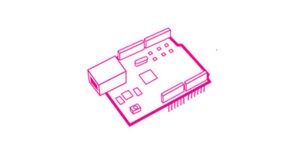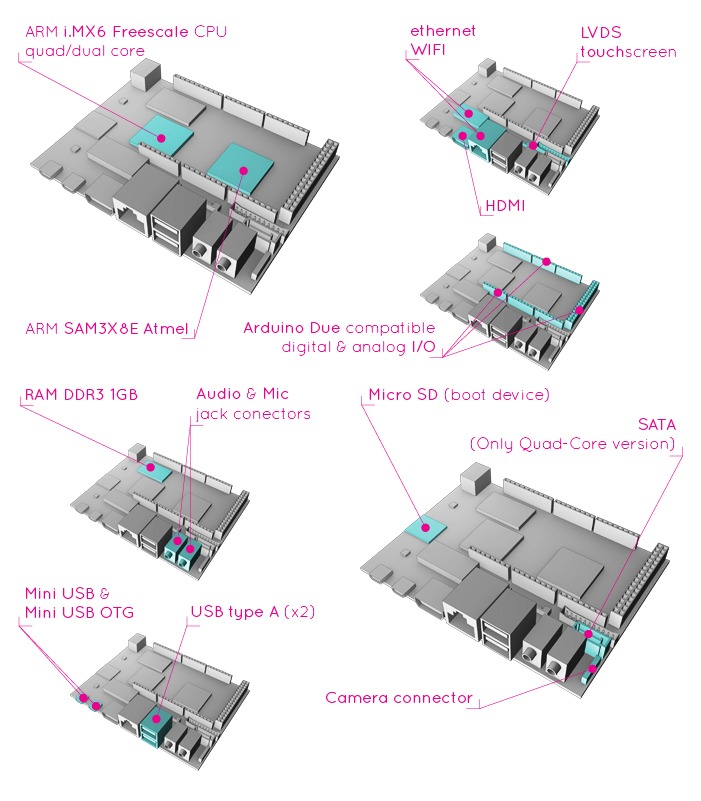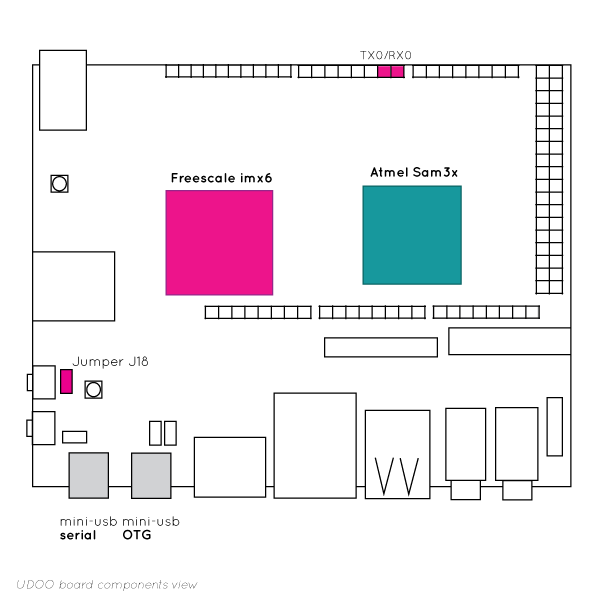Is this going to give Raspberry Pi a run for it’s money. Only if they keep the price low. This sounds like pretty exciting project. Hopefully they will be for on the shelves soon.
Running Linux
UDOO is a stand alone computer itself and since is based on the Freescale i.MX 6 CPU, it runs an optimized version of Linux Ubuntu for ARM architecture, called Linaro (11.10 at the moment). Linaro environment has everything you need for programming, for example you can use the Arduino IDE to build & upload your sketches to the Arduino-compatible embedded board, without additional/external cable connections.
Running Android

Android 4.0.4 Ice Cream Sandwich runs smootly on UDOO giving you all the features of an Android device (further Android releases will be available at the time of distribution). Apps interface with Arduino-compatible embedded board through Accessory Development Kit (ADK) connection for building accessories and smart devices based on Android.
Arduino™
UDOO is compatible with all the sketches, tutorials and resources available on the Arduino community as well as all the shields, sensors and actuators for Arduino DUE available on the market.
Quad Core Computer and powerful dedicated ARM for the GPIO
Power and flexibility in your hands
Power and flexibility for any kind of projects
UDOO is a very powerful board based on dual or quad core ARM cortex-A9 CPU with great performance both on Android and Linux OS, and a dedicated ARM processor for the GPIO. These are the main specifications:
- Freescale i.MX 6 ARM Cortex-A9 CPU Dua/Quad core 1GHz
- Integrated graphics, each processor provides 3 separated accelerators for 2D, OpenGL® ES2.0 3D and OpenVG™
- Atmel SAM3X8E ARM Cortex-M3 CPU (same as Arduino Due)
- RAM DDR3 1GB
- 54 Digital I/O + Analog Input (Arduino-compatible R3 1.0 pinout)
- HDMI and LVDS + Touch (I2C signals)
- Ethernet RJ45 (10/100/1000 MBit)
- WiFi Module
- Mini USB and Mini USB OTG
- USB type A (x2) and USB connector (requires a specific wire)
- Analog Audio and Mic
- SATA (Only Quad-Core version)
- Camera connection
- Micro SD (boot device)
- Power Supply (5-12V) and External Battery connector
Processors’ Communication
Here you can find the possible connections between the two processors, explained and illustrated in an easy and intelligible way.





